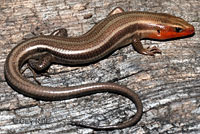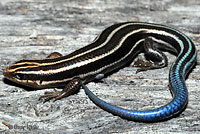Being a teacher, my life for most of the summer is somewhat
unstructured. I have gotten some
letters form my kids – which I dutifully answer the same day I receive
them. This little bit of old
fashioned writing is a pleasure for me.
The whole act of putting one’s thoughts down on paper, finding the
envelope, affixing a stamp, writing out the address, getting it to the mailbox,
putting the flag up… however
antiquated, it is still a worthwhile process for me.
I read more fiction during the summer. One of my favorite times of day is just
before the sun comes up. I don’t
think I’ve slept past 7AM all summer.
Old habits are hard to break.
The summer has had some sweltering temperatures, but at 6 in the morning
it’s not so bad. I usually sit on
the back porch with our big yellow dog and read before it gets too hot.
I have been doing some work for the university making
classroom videotapes into DVDs with logical chapters. I enjoy getting to watch good teachers doing their best work. I’ve seen quite a few of these little
scenes over the past few weeks.
But the work I love to do best in the summer is outside. Because it’s been so hot, watering our outdoor plants is
critical. A lot of this is done by
hand with the hose. Most of our
flowers and shrubs really can’t be seen from the road. But they make us feel good. I
know some people would scoff at the amount of time and effort it takes to keep
our landscaping alive – but it is a form of art for us; living art. If something gets too much sun, I dig
it up and move it to another spot.
Putting out pinestraw.
Mowing. Watering. Planting. Re-planting. We
spend a lot of time at it. It is a
labor of love.
There are always other projects to do outdoors if you live
in the country. We burn a
lot of wood in the winter. So,
stockpiling wood for our fireplace is something I think about often. We don’t have to buy wood. There are plenty of casualties in our
forest to keep us supplied. As a
consequence, at times we have too much wood. We took down a big old yellow oak a few years ago. It became our burning wood. That woodpile was a thing of beauty,
for that tree was amazing. We had
a fire almost every cold evening for the last three winters and still a lot of
that wood has gone soft.
Luckily, another big old oak has fallen and is waiting to be
cut up into fireplace lengths and added to our woodpile. But the old stuff has to go. I have been lugging it out into the
woods and placing it into crevices that are eroding. It’s been hot, sweaty work. Not too easy on this 58-year-old back either.
But it’s good work.
Honest work. It is
gratifying in the same way that painting is. 1. There is the
task before you. 2. You do the task. 3. You see the outcome of your labor clearly. It’s good stuff. Nothing very heady. You can sort of meditate while you are
doing it. Roll. Lift. Load.
Move. Unload. Rinse and repeat.
 Digging into an old woodpile is a zoologist’s dream. If you haven’t done it, you might not
believe the amount and variety of animals you’ll find. I couldn’t begin to list all of the
animals I’ve found in the last week or so. Some of them I know only generically such as centipedes and
millipedes and worms. But the
variation among those animals alone is pretty fantastic. Of course there are termites (better
there than in our home). There are
many varieties of ants from fireants who would love to sting, to great big
black ants with red thoraxes. When
I disturbed one colony, there were hundreds of cocoon-like eggs and each ant
rushed to find one and drag it to safety.
Digging into an old woodpile is a zoologist’s dream. If you haven’t done it, you might not
believe the amount and variety of animals you’ll find. I couldn’t begin to list all of the
animals I’ve found in the last week or so. Some of them I know only generically such as centipedes and
millipedes and worms. But the
variation among those animals alone is pretty fantastic. Of course there are termites (better
there than in our home). There are
many varieties of ants from fireants who would love to sting, to great big
black ants with red thoraxes. When
I disturbed one colony, there were hundreds of cocoon-like eggs and each ant
rushed to find one and drag it to safety.
There is a tremendous variety of beetles including one of my
favorites - the bess beetle. If you live in the south and have ever
turned over an old log in the woods these are familiar. Large and shiny black, these guys are
wood recycling factories. They are
slow and clumsy when out of their environment, but they do their job of
breaking down wood very well.
I saw slugs and snails and rolly pollies (isopods), small
wiggly worms that literally jump off the ground when touched, along with the
big fish-bait night crawlers. And
reptiles. There are little green
anole lizards, 5-line skinks with beautiful bright blue lines running down
their tails, and fairly big, fierce looking broadhead skinks. The heads of the males are reddish
orange and, I can tell you from experience, can bite pretty hard if you are
stupid enough to try to catch one.
You have to be careful of snakes when you are rooting around
in a woodpile. I found a large
garter snake, which startled me and caused me to yip and pull back.
A few weeks ago when I was uncovering those old logs, there was a beautiful big king snake. These are the snakes you want in your woodpile, as they eat the
venomous ones (like the infamous copperheads) when they can. They are surprisingly docile with humans and my son Devin (a snake whisperer if ever there was one) picked up that snake with slow ease and carried it around for a few minutes before releasing it right back where we found it.
A few weeks ago when I was uncovering those old logs, there was a beautiful big king snake. These are the snakes you want in your woodpile, as they eat the
venomous ones (like the infamous copperheads) when they can. They are surprisingly docile with humans and my son Devin (a snake whisperer if ever there was one) picked up that snake with slow ease and carried it around for a few minutes before releasing it right back where we found it.
 My favorite find of the day was my old friend Angelo, the
eastern box turtle. He was wedged
between two rotted logs on the bottom tier. If you have read my blog over the years, you may remember
that he was my classroom pet for about 23 or 24 years. I brought him home for the summer and
built a snazzy pen for him in the woods.
The next day he was gone. I was sad to lose my old friend and when I blogged about him, I got a response
from the editor of Ranger Rick, a
nature magazine written for kids.
She assured me that it was right and good for him to be in the
woods. I was at peace with it and
then rediscovered him. Of course
we set him free for good. He shows
up a couple times a year. One
predictable time is when the peaches fall off our tree before we can pick
them. Angelo trundles out of the
woods to eat the soft ones from the spongy earth beneath the tree.
My favorite find of the day was my old friend Angelo, the
eastern box turtle. He was wedged
between two rotted logs on the bottom tier. If you have read my blog over the years, you may remember
that he was my classroom pet for about 23 or 24 years. I brought him home for the summer and
built a snazzy pen for him in the woods.
The next day he was gone. I was sad to lose my old friend and when I blogged about him, I got a response
from the editor of Ranger Rick, a
nature magazine written for kids.
She assured me that it was right and good for him to be in the
woods. I was at peace with it and
then rediscovered him. Of course
we set him free for good. He shows
up a couple times a year. One
predictable time is when the peaches fall off our tree before we can pick
them. Angelo trundles out of the
woods to eat the soft ones from the spongy earth beneath the tree.
Just to look at that old woodpile, it wouldn’t seem like
such a marvelous ecosystem. I do feel a little sorry for city folks who don’t have access
to real woods, real dirt, and real animals in their natural environment. Some lessons for me include: that it
pays to look carefully, to get down on your knees and get your hands in dirt,
to appreciate the beautiful, intricate web of life that surrounds us.
If you look at little kids and wild animals, these are two groups of things that whenever I'm with them forces me to be in the moment.
If you look at little kids and wild animals, these are two groups of things that whenever I'm with them forces me to be in the moment.










